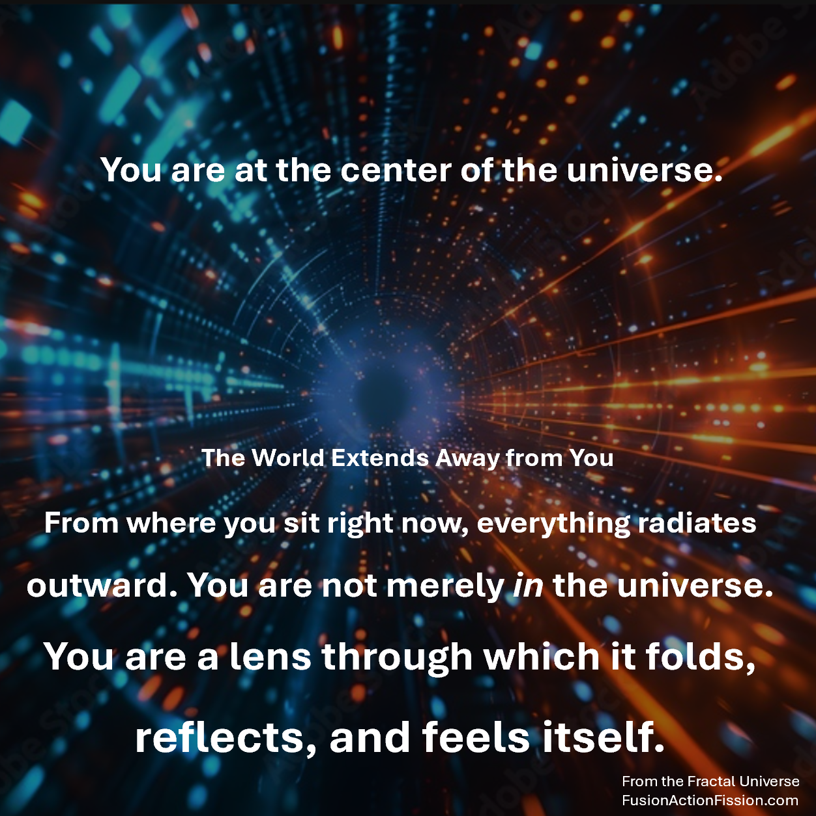Fractal Universe Says Every Stillpoint Is One

Scientific View: No Center, No Edge
Modern cosmology tells us that the universe has no center. This may seem counterintuitive, but it’s rooted in how scientists understand the Big Bang and the expansion of space:
• The Big Bang wasn’t an explosion in space, it was an expansion of space itself.
• Every point in the universe is moving away from every other point, not from a central origin.
• The universe is homogeneous (the same everywhere) and isotropic (the same in all directions) on large scales.
In this view, the universe is like the surface of an inflating balloon:
• Every point expands away from every other point.
• There is no privileged location: no center, no edge.
This model is supported by large-scale observations, including the cosmic microwave background and galaxy distribution surveys. It’s elegant, mathematically coherent, and deeply humbling.
But it leaves something out.
Fractal Universe: Center Emerges Wherever Awareness Arises
Fractal Universe doesn’t contradict science; it reframes the question. Instead of asking where the center is, it asks how center is experienced.
Every Sparksphere has a center, and at the same time, is the center. From any position, the universe unfolds outward without end. And inward, too, revealing an infinite substrate of memory, possibility, and encoded history.
This is not just poetic, it’s structural.
Wherever awareness finds itself, a Stillpoint emerges. And from that Stillpoint, space arranges itself. Near and far. Inner and outer. Past and future. The center is not a location; it is a dimensionless orientation that anchors perception and gives direction to motion.
Apply & Observe: The World Extends Away from You
From where you sit right now, everything radiates outward.
The floor beneath you, the sky above, the furniture, the trees, the people.
It all feels “out there” from your center.
This is not just a convenience of perception; it’s a pattern.
You are the local center of the universe’s unfolding fractal.
Pause and notice:
• How does space arrange itself around you? What feels near, and what feels distant?
• Do your thoughts spiral outward, from feeling to concept to action?
• When you stand in your city, does it feel like the center of its region?
• Does your country feel like a world in itself, with everything else orbiting beyond its edge?
• Looking up at a starry night sky, does it seem like space extends away from the Earth?
These nested perspectives—personal, civic, national, planetary—each mirror the same truth:
You are not merely in the universe.
You are a lens through which it folds, reflects, and feels itself.